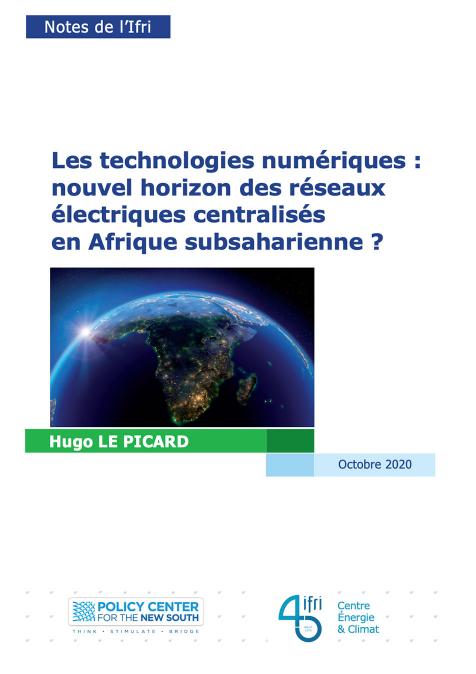Publications /
Policy Paper
L’enjeu du développement des systèmes électriques centralisés est une priorité pour le développement économique et social de l’Afrique subsaharienne. Alors que la population subsaharienne devrait presque doubler en trente ans selon l’Organisation des Nations unies (ONU), pour atteindre 2,1milliards d’habitants en 2050, dont 1,2milliard d’urbains, le continent va devoir fournir des emplois aux jeunes qui arrivent chaque année plus nombreux sur le marché du travail. Ce sont ainsi 20millions d’emplois supplémentaires qui devront être créés tous les ans au cours des vingt prochaines années afin d’absorber les nouveaux arrivants. Face à cela, le développement du secteur industriel devrait permettre de réduire la pauvreté endémique dans la région, tout en canalisant l’accroissement démographiqueet l’urbanisation rapide du continent. Cependant, le développement du secteur industriel est fortement limité par la faiblesse des réseaux électriques centralisés subsahariens.










